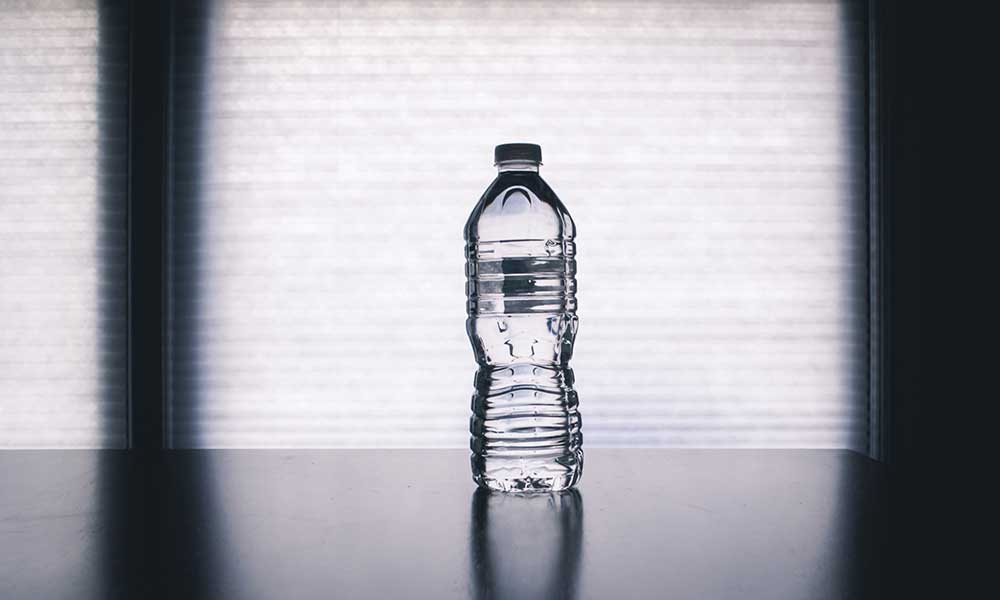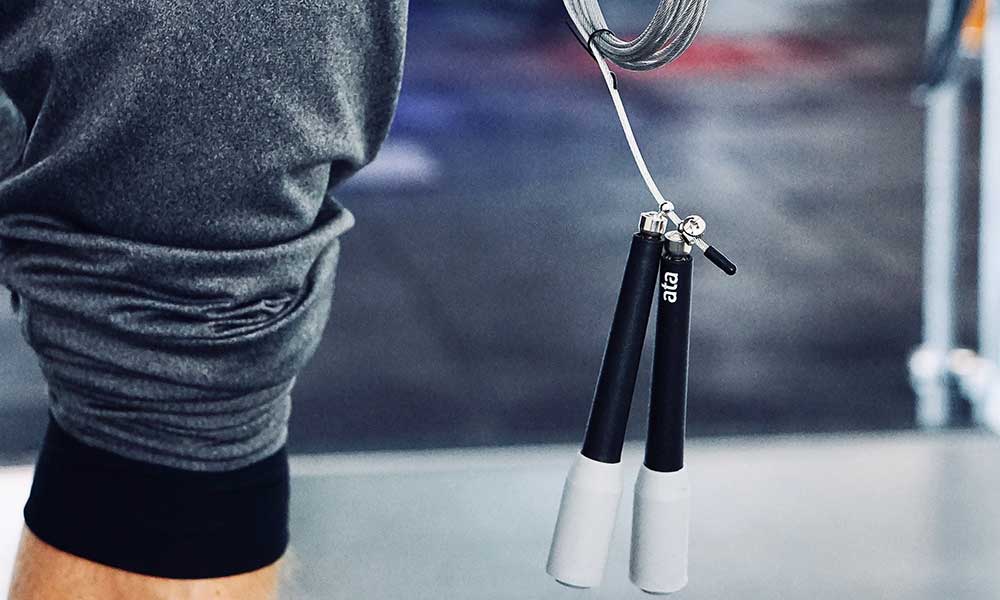Hydration is a major key to your running success. Hotter summer days mean that you’ll need more water as you get out for your run. Unless you have a route with good access to drinking water, you will likely need to carry a water bottle with you so you don’t dehydrate, overheat, and put yourself at risk of sunstroke.
But carrying water on your run can be a bit cumbersome, not only does it add weight, but if you want your hands free, it means you have to wear some other kind of accessory to carry it.
In this article, we’ll talk about a few different types of systems that are lightweight and will help to evenly distribute the weight so as not to negatively affect your run.
So, just how much does a water bottle weigh?
A full, 16.9 fl oz, or half liter, single-use plastic water bottle weighs around 1 pound when filled with water.
The bottle itself weighs just .02 pounds, 9 grams, while the nearly two cups of water makes up the majority of the weight.
One cup of water weighs .52 pounds.
As you plan for carrying water on your run, you will be looking at adding about a half pound of water per cup you plan to bring.
How to carry water on a run
Different types of water bottles and hydration systems vary in weight based on material. Ultimately, the heaviest part of a water bottle is the water itself, so while it’s important to choose a lightweight water bottle or hydration system, the weight of the empty water bottle will likely not bother you much while you run.
Here is a breakdown of some different styles of hydration systems. You may find that you want a different style depending on the type of run you’re doing. Keep trying things out until you find the hydration system that works best for you.
Remember, the goal is to find something that helps you achieve your running goals, not something that causes additional suffering. An added benefit of carrying extra weight with you while you run is that, while maybe difficult at first, it does help to make you stronger.
Bottle in hand
The most low-tech system is just to grab a water bottle, whether reusable or disposable, and carry it in your hands during your run. Some runners worry that having weight in one hand while not the other will cause an imbalance in running. To avoid this, you can switch hands during the run or carry a bottle in each hand to keep yourself in balance.
As you sweat during your run, though, it may be hard to keep your grip on the bottle. Fortunately, there are straps that easily fit over your hand to allow the water bottle to rest in the palm of your hand without actually having to hold it. There are also bottles shaped to slip your hand through the bottle, making them easier to grip.
These are convenient for shorter runs when you just don’t want to have to carry a lot with you or wear a belt or vest. You may not be able to carry water bottles in your hands if you are trail running or going out for several hours.
Running vests or backpacks
A great way to carry a larger volume of water while you run is to carry it on your back. There are all sorts of running vests and backpacks on the market that each fit a variety of different-sized bladders.
The upside is that you can always adjust the amount of water you put in the bladder depending on the distance of the run you will be doing. You can also use these backpacks to bring energy gels, snacks, additional clothing, and other items you may want along with you as you run.
Some vests or backpacks have easy access pockets on the front for lightweight refillable water flasks. So, if you like the idea of a vest but not the bladder on your back, this may be the system for you.
Some runners complain that having something on their back while running doesn’t allow their body to breathe efficiently, thus overheating.
Running belts
Running belts distribute the weight in your lumbar, leaving your hands free and your back able to breathe. There are all different kinds with different types of water bottles or flasks.
These belts, like backpacks, can vary in size and capacity with some only holding water and your phone, while others can fit enough food, water and additional clothing for an extended period of time on the trail.
They can be hard to get used to, as water bottles may impede the natural swing of your arms or it may feel like they’re bouncing too much or about to fall off.
How much water should I bring on a run?
Every single body is completely unique and different. Some people sweat more than others while others of us may take diuretics that require much more hydration daily. The amount you will want to carry with you can vary greatly.
For those who sweat profusely in the summer heat, almost 16 oz or two cups will be necessary every 15 minutes. That’s a whole bottle of water, so that person would need 4 to run for an hour. Each 16.9 fl oz of water is about a half liter, so that’s two liters an hour.
Most runners, however, will be running in the early morning or evening, especially in the middle of the summer which will lead to cooler temperatures and reduce the amount of hydration needed. You may need to test out your own personal water needs as you run.
The most important thing is to remember to bring water. If you only have one smaller bottle, plan to run by a location that has a spot for you to refill your water like a park, or even a coffee shop with nice employees. Adjust as necessary and avoid running at the peak heat of the day.
How to hydrate properly before and during a run?
To reduce the amount of water you will need during your run, it is important to hydrate properly before leaving the house. And, this isn’t just about reducing the weight you have to carry with you, proper hydration will lead to great success during your run, giving your body the resources it needs to keep you moving efficiently and healthily.
As a general guideline, about two hours before your run, try to drink two full cups of water—about 16 ounces. Then, about 15 minutes before you head out, drink another cup of water.
Drinking a ton of water immediately before you run can lead to cramping, nausea, and ultimately slow you down. Then, plan to drink water regularly during your run to avoid dehydrating.
As you run, drink water at normal intervals. If you’re only hydrating when you actually feel thirsty, it may already be too late. You want your body to always have a reserve of water to draw from so dehydration doesn’t even begin to set in.







